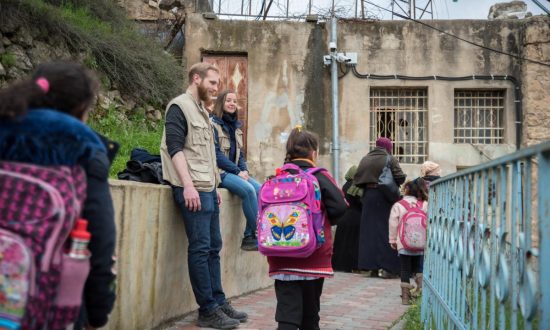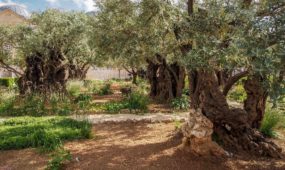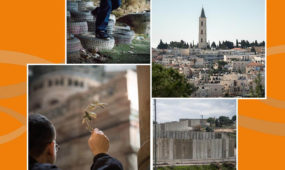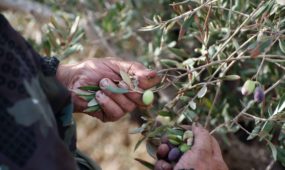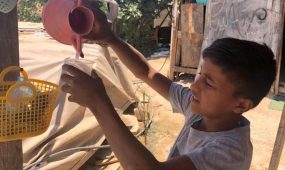
Um Ismail, in her 50s, loves her children fiercely and wholly, as mothers do all over the globe. But for Um Ismail, who lives in the Khan Al-Ahmar Bedouin community, finding enough water for her 10 children makes daily life impossible for her family
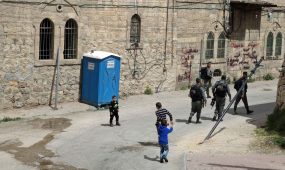
“My Ecumenical Accompaniment Programme in Palestine and Israel teammates were clearly upset when they came home one night after visiting a family in the West Bank town of Azun. As they debriefed with me, I learnt about the arrest of a 14-year-old Palestinian boy earlier that morning. This was the first time that we heard a firsthand account of Palestinian children being detained by the Israeli military, but sadly this wasn’t the last story that we documented in our roles as Ecumenical Accompaniers,” says Nell Potter from the Palestine Israel Ecumenical Network
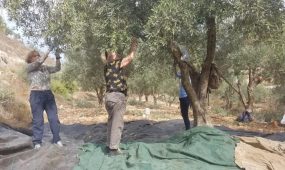
Representatives from the World Council of Churches Ecumenical Accompaniment Programme in Palestine and Israel recently joined with Rabbis for Human Rights to be a presence of helping hands and hopeful hearts in villages during the olive harvest
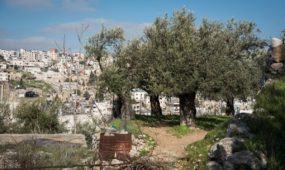
Jack Munayer, coordinator for the World Council of Churches Ecumenical Accompaniment Program in Palestine and Israel, recently visited the South Hebron Hills area with diplomatic delegates from eight different countries, as well as Israeli activists. The visit was organised by the United Nations Office for the Coordination of Humanitarian Affairs. The group visited families and listened to their stories with the goal of discerning the nature of hardship and trauma that the occupation continues to cause. Munayer shares his reflections on what he heard from communities and families.
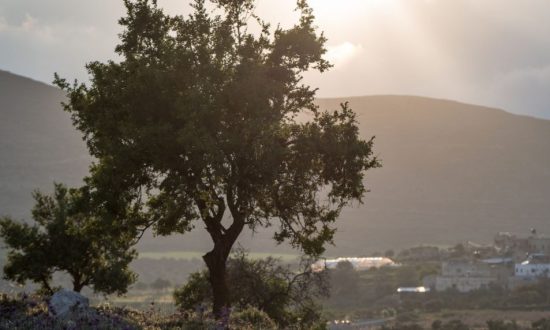 Resources & Research
Resources & Research

